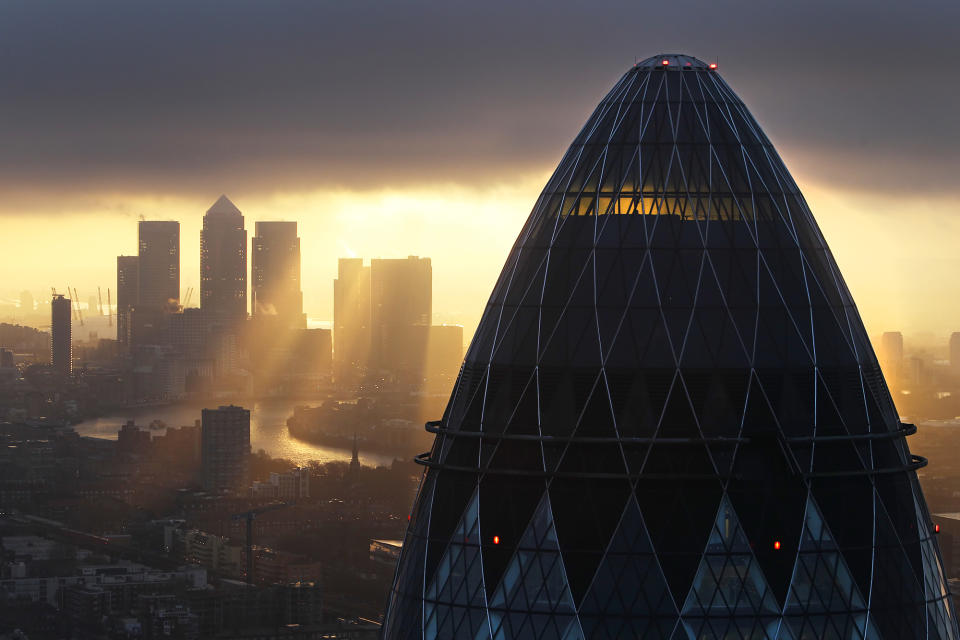Why UK business should not let Brexit deter M&A activity

The UK must ensure it avoids the temptation of protectionism in the wake of Brexit and remains open for mergers and acquisitions.
The commonly held view is that since the Brexit vote UK companies have become vulnerable for takeovers because of the low pound, but since the vote M&A activity has plunged 60 per cent.
Before the vote, the amount of M&A activity made sure 2016 was still a record year in the UK, with around $250 billion of deals completed, inflated by several large deals such as the ‘Megabrew’ takeover in which the world’s biggest brewer, AB InBev, bought the second-biggest SAB Miller for $106 billion. Adviser fees for that deal alone totalled almost $1.5 billion, while total UK M&A fees in 2016 were $5.5 billion, a real boost for London’s financial services industry.
MORE: Brexit mass exodus feared as 1.2 million EU workers plan to leave UK
MORE: Failed Brexit talks will spark three-year recession, leading insurer cautions
Such a deal is a clear demonstration of the value of maintaining open markets, unencumbered by protectionism or ineffective corporate governance arrangements prevalent in parts of mainland Europe.
UK deal activity has collapsed in the wake of the Brexit vote thanks to the increased uncertainty. Dealmakers thrive when uncertainty is low and liquidity is high.

The outlook for liquidity still remains favourable as corporates are awash with cash earning next to nothing in the bank. Borrowing costs net of tax are below inflation, while institutions and private equity have more cash than viable opportunities. In addition, weak sterling relative to both the dollar and euro means that UK-based businesses are cheap. Once Brexit uncertainty clears then provided liquidity continues the UK should remain an attractive place for acquisitions.
This is because the major attraction of UK listings is that there is generally less protectionism, while corporate governance standards are high, so it is more difficult for boards to block deals which are in the shareholders’ interests.
MORE: Hard Brexit is dead, here’s why
Many countries are looking to increase protectionism principally to safeguard local employment. However, this can lead to less competent boards hanging on to power.
This was recently demonstrated by US-based PPG Industries, a coatings and specialty chemicals producer, bidding for Dutch listed AkzoNobel, owner of Dulux paints. The bid at €23.8 billion represented a 50 per cent premium to the undisturbed share price and was clearly in the shareholders’ best interests.
But due to the governance structure the board turned down bids on three occasions and refused to allow the shareholders a vote. While a hostile takeover proved too costly thanks to the complexity of Dutch corporate governance matters and poison pills to negotiate.
And yet, following this and the failed Unilever-bid by US-based Kraft Heinz, the Dutch government spoke of making it still more difficult for foreign companies to buy national treasures, whatever their performance.
MORE: Who is going to invest in the UK post-Brexit?
Shareholders are the clear losers from protectionism and poor governance arrangements. The board keep their jobs despite a lacklustre performance and their limited regard for shareholder interests.
While there has been some recent grumbling in the UK about protecting industries from asset-stripping overseas buyers or ensuring that employment promises are implemented, there is little sign the UK will not remain a very open market for M&A.
Indeed, as protectionism increases elsewhere London becomes more attractive to investors. In turn this generates huge fees for advisers and the City. Current and future UK governments are likely to be aware of this and restrictions are unlikely to increase.
Ultimately Brexit will drive the government of the day to ensure that in relative terms the UK remains attractive. While in the short-term Brexit is reducing merger and acquisition activity, in the longer term London will have its day again – as long as it stays open for business.
John Colley is professor of practice in the strategy and international business group at Warwick Business School, and a former MD of a FTSE 100 company.

 Yahoo Finance
Yahoo Finance 

